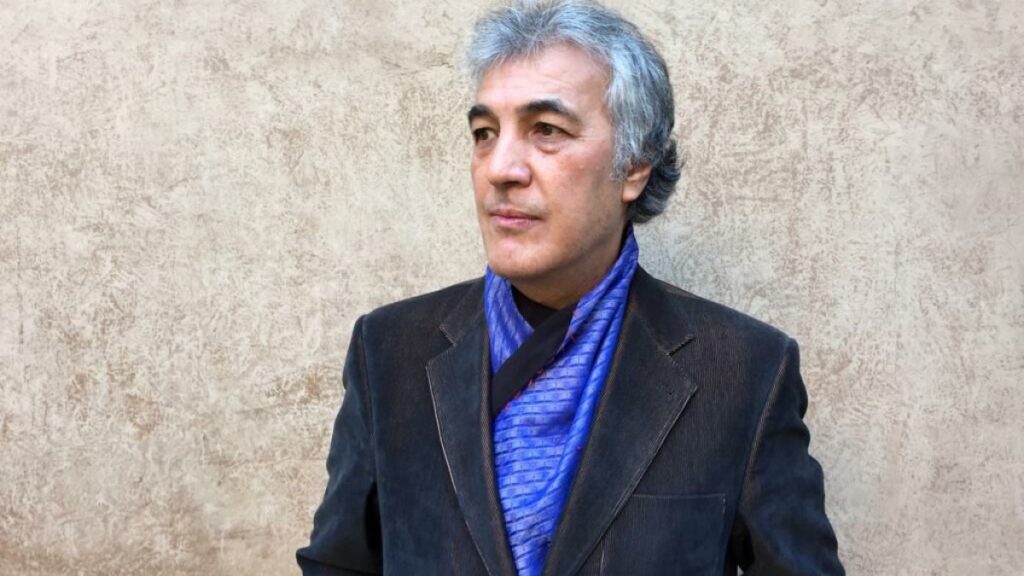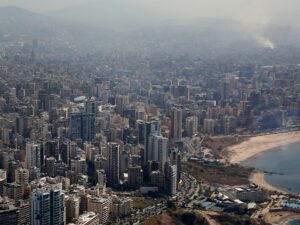
Shamshad Abdullaev’s very name was a confluence of cultures.
A Persian first name (“a pine-like tree”), an Arabic last name (“A servant of God”), and a Slavic “ev” ending that simply means “of”.
This combination was possible in the former heart of the Great Silk Road, in ex-Soviet Uzbekistan, a Central Asian nation once associated with political purges and child labour in the cotton industry.
With the look of an ageing Italian film star and the demeanour of a refined aristocrat, Abdullaev, who died of cancer at age 66 on Tuesday, was a poet and essayist who wrote in Russian.
His artistic output is modest – several small books of poetry and essays, and a film script that never became a film but helped him buy an apartment in the eastern Uzbek city of Ferghana in the late 1980s.
His poems lacked rhyme and steady meter, and yet, his life and work help answer some of the hardest questions an artist faces in today’s world:
Is art to blame for wars and imperialism?
How do you decolonise your culture, if you write in your former coloniser’s language?
As the Russia-Ukraine war grinds into its third year, how far do you need to go in rejecting Russian language and culture?
And what if this language is the artistic tool of an apolitical man who detested autocracy, did not have a single drop of Russian blood and was lambasted for not following Russian poetic traditions?
Ferghana
For those who know about ex-Soviet Central Asia, the word “Ferghana” is mostly associated with the valley of 16 million people, the most fertile and densely populated piece of land between China, Iran and Russia.
Ferghana was the focal point of the Great Silk Road that brought together, fused and disseminated technologies, cultures and religions.
Unevenly divided between Uzbekistan, Tajikistan and Kyrgyzstan, Ferghana also became the site of post-Soviet political tensions and bloodbaths.
But Abdullaev made the name “Ferghana” – that of the valley and the eponymous city where he was born in 1957 – associated with an unusual cultural hybrid of his writings.
Back in the Soviet 1970s, Abdullaev transplanted forbidden trends of Western modernism into Russian verse:
“The midday – spring-wound – with its lilac skin
cracked along a fold, reveals a path to blooming,
the nest feels heavier, and death
doesn’t submerge in a jar of iridescent honey”
(from “Midday, 1975”, translated by Alex Cigale)
‘The Oriental Star’
Such introverted escapism was opposed to the official tone and tenor of Soviet literature, and only Ferghana’s remoteness from Moscow kept Abdullaev under the radar of Communist apparatchiks and secret services that forced more politicised writers – and future Nobel Prize winners – Alexander Solzhenitsyn and Josef Brodsky out of the USSR.
Meanwhile, Ferghana, a tranquil, somnambulant city, where giant sycamore trees blanketed apartment buildings from merciless sunshine, became a cradle of unusual art.
Enver Izmaylov, a musician born into a family of exiled Crimean Tatars, developed a “two-handed” style of playing guitar that would make him a sensation at European jazz festivals.
Artist Sergey Alibekov merged European oil painting with Central Asian imagery and created a cartoon that dared depict the work of the human mind.
Abdullaev’s works were published only after the perestroika reforms that opened the USSR to the world – and vice versa.
In 1991, shortly before the Soviet collapse, Abdullaev began contributing to a minor cultural sensation. For four years, he was poetry editor of the literary magazine Zvezda Vostoka (“The Oriental Star”).
The magazine published once-banned works of Western modernists – next to the revised translation of the Quran, works by Sufi theologians, Chinese Taoist philosophers and the Nobel-prize-nominated Syrian poet Adonis.
Russian novelist Sergey Spirikhin landed in the Uzbek capital, Tashkent, to write a “spot novel” by writing down what was happening to a colony of street artists within a day – and had the work published in the Zvezda Vostoka.
Meanwhile, Abdullaev became a star among unorthodox and underground artists in ex-Soviet republics, while being rejected by more conservative writers.
“Back in the 1980s, Shamshad was already writing in his own, newly invented language that was angrily repudiated by all traditionalists of Russian literature,” Daniil Kislov, an acolyte of Abdullaev who eventually became editor of influential news website Ferghana.ru and a Central Asia analyst, told me.
In 1994, he received a prize named after trailblazing Russian poet Andrey Belyi – a counterculture award in the form of a glass of vodka and an apple that had to be consumed in front of the jury and the cheering crowd of literati.
Abdullaev, who barely touched alcohol, had to force himself to “accept” the prize.
The magazine’s circulation rose to an astronomical 250,000 copies that sold mostly in now-independent Russia and the Baltic republics.
My friend and mentor
That’s when I met and befriended Abdullaev – and he immediately convinced me to translate several poems from English and Italian. I was a 19-year-old English literature student and was happy to see my name in a “serious” magazine.
Later, after getting an office job, I typed up dozens of his poems that needed to be emailed to his publishers and friends thousands of kilometres away.
“The world’s centre is nowhere and everywhere,” Abdullaev told me more than once, proving that world-class literature can be forgotten in a Central Asian backwater.
But a groundbreaking literature magazine was not something Uzbekistan’s authoritarian President Islam Karimov could tolerate. In 1995, he ordered the entire editorial board of the Zvezda Vostoka to be fired.
Abdullaev became a jobless poet who lived in modesty verging on poverty, but frequently travelled to literary festivals in the former Soviet Union, Europe and the United States.
Like hundreds of like-minded artists who shun state sponsorship, media buzz and politics, he symbolically redeemed high art’s original sin.
High art requires decades of one’s dedication to an art form – music, literature, painting – and centuries of tradition.
It thrives in affluent countries that often happen to be empires – and often whitewashes the blood spilled by their rulers.
The world’s known first “author” was poetess Enheduanna, whose father, Sargon of Akkad, stitched together the Middle Eastern empire – and appointed his daughter a high priestess of moon god Nanna.
Roman Emperor Augustus showered Virgil, whose lengthy poem Aeneid became a focal point of Latin literature, with gold plundered from all over the Mediterranean.
To many Iranians, Shahnameh, an epic by Ferdowsi, embodies their national spirit. But it was paid for by Mahmud Gaznavi, who drowned what is now Pakistan and northern India in blood after dozens of attacks.
However, artists such as Vincent van Gogh, itinerant Japanese haiku master Matsuo Basho, French “damned” poet Charles Baudelaire, and, yes, Abdullaev, never wrote paeans to rulers.
They never grovelled in the halls of power, never accepted rich commissions and state pensions – and paid for their honesty with their lives:
“The song of a mockingbird seeps into the taste of black cherry
especially here in father’s and mother’s
yard where for the first time the question
and answer are heard in unison—
the freshness of the vanishing provinces at
the end of a century when
the final stage of any microcosm resembles a prolonged dawning.”
(“Family,” translated by Alex Cigale)








More Stories
Prosecutor won’t file charges against former Thornton Police sergeant, but calls use of force ‘uncontrolled and irresponsible’
Brazil seals $30bn compensation deal with BHP, Vale over 2015 dam collapse
Lebanon added to money laundering ‘grey list’